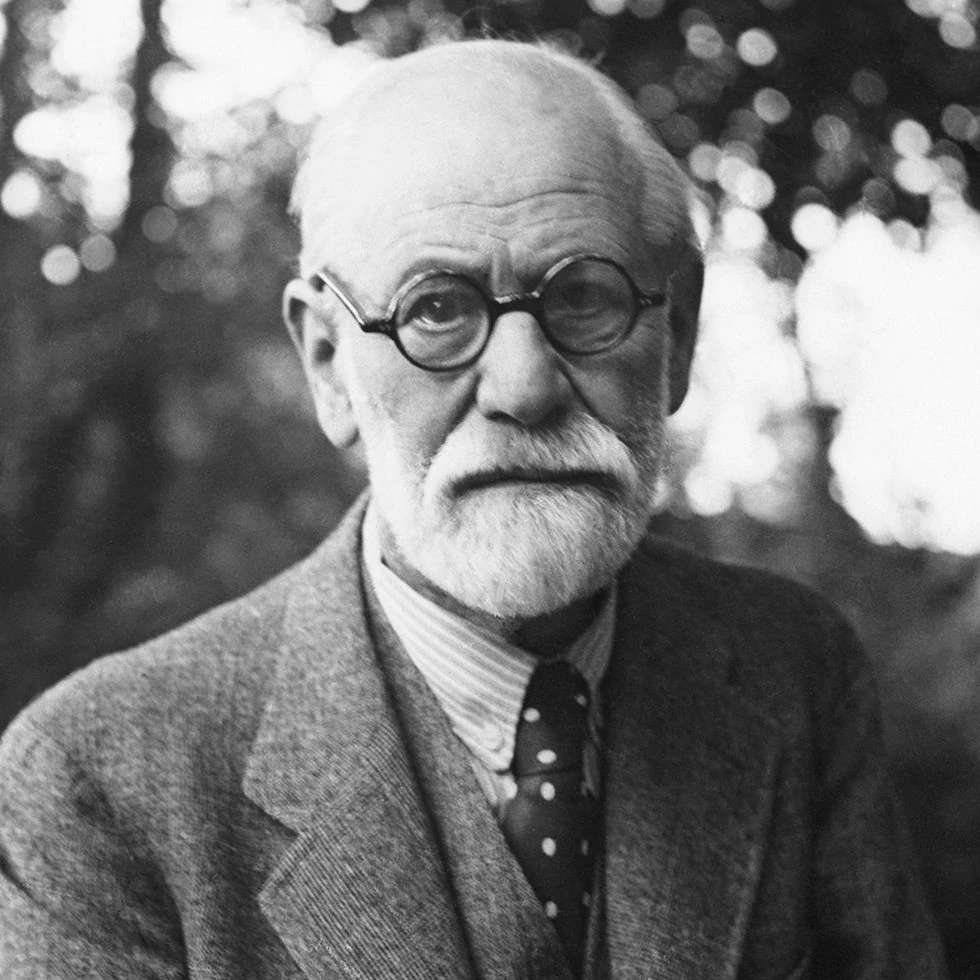
The Life and Legacy of Sigmund Freud: Father of Psychoanalysis
5 min read
Sigmund Freud, born Sigismund Schlomo Freud on May 6, 1856, in Freiberg, Moravia (now Příbor, Czech Republic), was a pioneering neurologist whose work laid the foundation for modern psychoanalysis. Raised in a Jewish family, Freud showed exceptional intellectual promise from a young age. His family moved to Vienna, Austria, when he was four years old, where he would spend most of his life.
Freud enrolled at the University of Vienna in 1873, initially studying law before switching to medicine. He was particularly interested in neurology, and his early work involved research on the physiology of the brain. In 1881, he received his medical degree and began practicing as a clinical neurologist.

The Development of Psychoanalysis
Freud's journey into the depths of the human psyche began in earnest during his collaboration with Josef Breuer. Together, they worked on the case of Anna O., a patient suffering from what was then termed "hysteria." (from Greek hystera, which means womb). Through this case, Freud developed the idea that talking about one's problems could alleviate psychological distress. This concept, known as the "talking cure," became a cornerstone of psychoanalytic theory. In the 2011 fictional drama movie “A Dangerous Method” directed by David Cronenberg we meet Sigmund Freud (Viggo Mortensen) and Carl Jung (Michael Fassbender) practicing “the talking cure” on their patient Sabina Spielrein (Keira Knightley). Sabina Spielrein later obtained her doctorate in psychiatry (where she contributed to developing the field of psychoanalysis). In 1895, Freud and Breuer published "Studies on Hysteria," which introduced the idea that psychological issues could be rooted in unconscious processes. This marked the birth of psychoanalysis. Freud proposed that the mind is divided into three parts: the conscious, the preconscious, and the unconscious. He argued that repressed memories and desires in the unconscious mind influence behavior and thought processes.
Key Theories and Works
Freud's theories revolutionized the understanding of human psychology. Some of his most influential concepts include:
- The Unconscious Mind: Freud believed that much of human behavior is influenced by unconscious desires, fears, and memories. These repressed elements can manifest in dreams, slips of the tongue (Freudian slips), and neurotic behavior.
- The Structure of Personality: Freud introduced the model of the mind as comprising three elements: the id, the ego, and the superego. The id represents primal desires, the ego mediates between the id and reality, and the superego embodies moral and societal standards.
- Psychosexual Development: Freud proposed that personality develops through a series of stages centered on erogenous zones. These stages include the oral, anal, phallic, latency, and genital stages. Fixations or conflicts at any stage can result in psychological issues later in life.
- Defense Mechanisms: Freud identified several defense mechanisms that the ego uses to protect itself from anxiety and conflict. These include repression, denial, projection, and sublimation.
Freud's seminal works, such as "The Interpretation of Dreams" (1900), "Three Essays on the Theory of Sexuality" (1905), and "Beyond the Pleasure Principle" (1920), expanded on these ideas and solidified his role as a foundational figure in psychology.
Legacy and Criticism
Freud's impact on psychology and culture is undeniable. He introduced a new way of thinking about the human mind, behavior, and the importance of early childhood experiences. His work influenced not only psychology but also art, literature, and popular culture.
However, Freud's theories have also faced significant criticism. Some argue that his ideas are unscientific and lack empirical support. Others criticize his overemphasis on sexuality and the fact that his methods are only based on adults and upper class women from the late 19th century in Vienna. Despite these criticisms, Freud's contributions to the field of psychology continue to be studied and debated.
Later Years and Death
In the 1930s, Freud's health began to decline due to cancer of the jaw, a condition exacerbated by his lifelong habit of smoking cigars. Despite numerous surgeries, his condition worsened. In 1938, following the Nazi annexation of Austria, Freud and his family fled to London to escape persecution. He continued to work until his death on September 23, 1939.
Conclusion
Sigmund Freud's exploration of the human psyche transformed the field of psychology. His theories on the unconscious mind, the structure of personality, and psychosexual development remain integral to understanding human behavior. While his work is controversial and has its detractors, Freud's legacy as the father of psychoanalysis endures, influencing generations of psychologists, thinkers, and artists.
Sources
- Freud, S. (1900). The Interpretation of Dreams. New York: Macmillan.
- Freud, S. (1905). Three Essays on the Theory of Sexuality. New York: Basic Books.
- Freud, S. (1920). Beyond the Pleasure Principle. Vienna: International Psycho-Analytical Press.
- Breuer, J., & Freud, S. (1895). Studies on Hysteria. New York: Basic Books.
- Gay, P. (1988). Freud: A Life for Our Time. New York: W.W. Norton & Company.
- Jones, E. (1953). The Life and Work of Sigmund Freud. New York: Basic Books.
- Miller, A. (1981). For Your Own Good: Hidden Cruelty in Child-Rearing and the Roots of Violence. New York: Farrar, Straus and Giroux.